Sustainable thinking ramps up in Vietnam
Just over a week ago, ALBA Asia Group and VietCycle Company agreed to jointly develop the largest PET/HDPE plastic recycling plant in Vietnam, with a capacity of up to 48,000 tonnes per year.
ALBA is a German company with more than 50 years of experience in the waste management and recycling industry. Meanwhile, VietCycle has been in existence for more than 20 years in domestic waste collection and plastic recycling activities.
The new plant will be built this year in the northern province of Ha Nam and officially start operation from 2024, with a total investment of $50 million. The project aims to use cutting-edge technology to produce food-grade PET/HDPE plastic with quality on par with the international standards set by the EU.
“With our holistic approach and application of digitalisation, we aim to sustainably improve the living and working conditions of collectors. The project will be part of a much-needed solution to Vietnam’s growing plastic waste problem. Furthermore, it will create a significant number of green jobs and will improve the economic situation of many people,” said chairman of ALBA Group Asia, Axel Schweitzer.
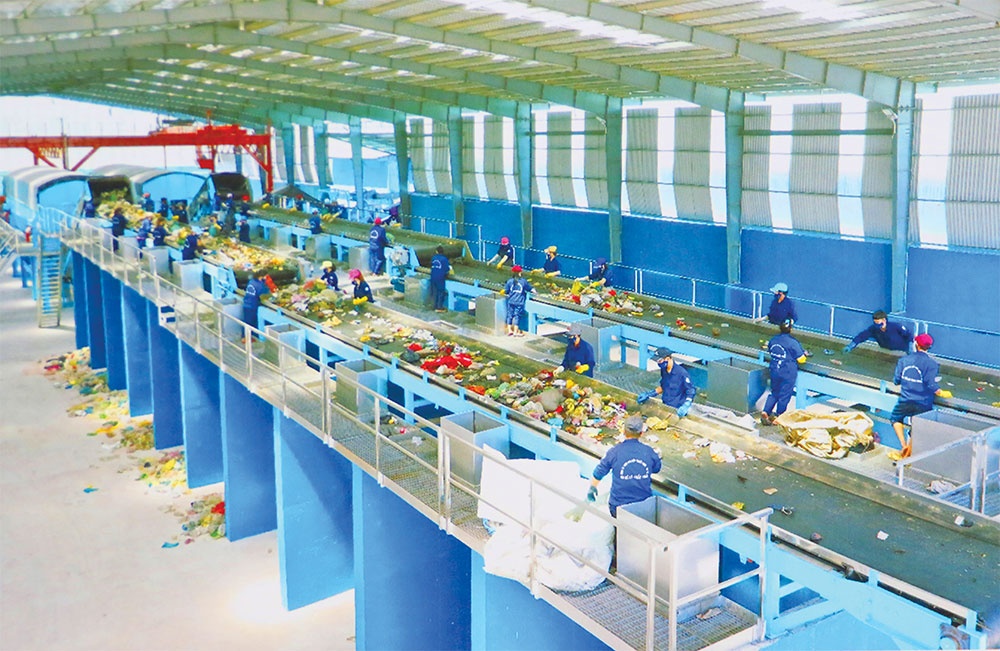 |
| Companies are innovating with modern tech to make recycling activities more efficient, photo Le Toan |
In many localities nationwide, authorities are struggling to collect, transport, and treat increasing amounts of waste, and the situation is expected to worsen with population growth. To solve the problem, Vietnam is developing the recycling industry and identifies this as one of the most effective solutions to reduce waste.
The amended Law on Environmental Protection passed in 2020 emphasises the development of a circular and green and low-carbon economy, requiring a reduction in the use of raw materials and fuels.
According to Assoc. Prof. Nguyen Dinh Tho, general director of the Institute of Strategy and Policy on Natural Resources and Environment under the Ministry of Natural Resources and Environment (MoNRE), said the environment law stipulates that polluters shall have to bear the costs of environmental damage that they cause, and if they cannot reduce waste, they have to pay waste collection costs to the Vietnamese government.
“Enterprises can be very responsible, but we must also have additional regulations that extend the liabilities of manufacturers if they fail to comply. We will ask manufacturers to collect and recycle plastic packaging. If they cannot do so, they will have to pay for others to do it,” Tho said.
However, businesses are currently lacking high-grade recycled products, and many plastic recycling businesses in Vietnam are also losing orders because the recycling plant has a small capacity and the current recycling technology has not completely met requirements.
Nguyen Thi Mai, vice president of home care products at Unilever Vietnam, said, “Plastic after recycling is often not as beautiful as the original plastic. Without the cooperation of the state and the business community, it is not truly possible to have a scheme with long-term and widespread impact.”
Unilever is working with the MoNRE on initiating the circular economy. The business is focused on packaging solutions and reducing the amount of plastic used in production. Shells from Unilever products are now made from 100 per cent recycled PCR plastic.
The enterprise is also researching and innovating product packaging structures using polyethylene materials and modern technology to make recycling activities more convenient, committing to reduce half of plastic used in production.
So far, Unilever and its partners have collected more than 20,000 tonnes of plastic waste, and they have built 150 waste collection stations.
“Managing, collecting, and treating plastic waste and creating a new life cycle for them are not an easy task. Unilever’s programmes may not have made a big impact yet, but I hope they will inspire businesses and organisations to participate in reducing the amount of waste discharged into the environment,” said Mai.
Nestlé Vietnam is also a pioneer of recycling in Vietnam. In 2022, its designed-to-recycle packaging rate was close to 94 per cent, and the business has also achieved its goal of recycling all packaging by 2024.
Since 2020, Nestlé Vietnam has replaced plastic straws with paper straws in all relevant products, and switched to biodegradable and reusable materials.
| Hoang Duc Vuong-Chairman Vietnam Plastics Association Recycling Branch I believe in the effective leadership and strong commitment of the Vietnamese government in combating plastic pollution, especially regarding the innovative mindset with waste management policy, efforts towards legalising waste classification at source, the extended producer responsibility, as commitments to building a circular economy. We expect the government will soon develop eco-design standards for recycling, as well as having in place a policy framework to develop the recycling market, along with increasing communication and education on green and sustainable consumption and sustainable development so that Vietnamese people can be proud of being able to manage waste efficiently. Vietnam is currently very short of high-end recycled products, so businesses in the plastic industry miss out on too many orders because of the lack of high-quality recycled materials in bulk volume. In addition, as recycling involves a complex process, the price of recycled products is therefore higher than common plastic items. Support from government policies as well as from brands and people is therefore crucial for realising green and sustainable consumption goals. Hoang Van Thuc-Director-general, Environmental Quality Management Department, Vietnam Environment Administration Since 2005, the MoNRE has helped to improve the legal framework for domestic solid waste management, including plastic waste, from sorting and collection to transportation and disposal. We all know that plastic pollution is a global problem, and no country can solve it on its own. This common challenge requires countries around the world to work more closely together to come up with global solutions. Since 2019, Vietnam’s leaders have called on people to take on practical and specific actions to prevent arising plastic waste so that current and future generations can live in a clean, safe, and sustainable environment. The movement against plastic waste is becoming a bright spot in environmental protection in Vietnam. State agencies from central to local level across the country have embraced anti-plastic waste activities, in which the business community have proactively responded. To cooperate effectively and sustainably with the environment, investors need to fund modern, environmentally friendly technology and machinery, and fully comply with the environmental protection law. Nguyen Hai Minh-Vice chairman European Chamber of Commerce in Vietnam Thus far, Vietnam has acted by crafting a new green growth strategy and vowing to reach net-zero by mid-century, accompanied by commitments in specific fields – for example, in the field of natural resources and environment, we have a decree that covers the environmental protection issue. Vietnam cannot do it alone, however. It is imperative that in the transition process, we can avail the support of international partners, donors, and a crucial support that comes from the business community and investors. Through the organisation of the Green Economy Forum and Exhibition in November last year, we saw that there are huge opportunities for the Vietnamese government to keep pace with the European Union in sustainable development, and also to open opportunities for its local businesses. Investment from the EU to Vietnam is quite significant. Through our research, it is certain that investment from the EU to Vietnam could increase, especially in the green economy and green growth, as well as in energy and infrastructure. |
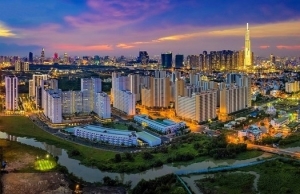 | Vietnamese real estate remain attractive to foreign investors The Vietnamese real estate market has remained attractive to foreign investors and investment funds despite difficulties countering domestic firms, according to insiders. |
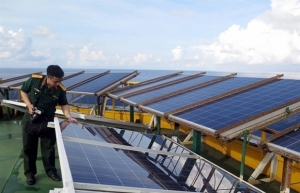 | Vietnam to complete policies, laws for sustainable energy development Experts discussed the implementation of policies and laws on energy development in the 2016-2021 period at a conference co-organised by the Vietnam Union of Science and Technology Associations (VUSTA) and the National Assembly (NA)'s Committee for Science, Technology and Environment (CSTE) in Hanoi on March 5. |
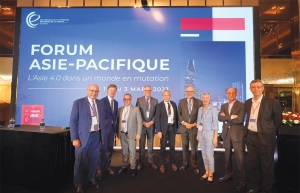 | France trailblazing in sustainable development The Indo-Pacific region, particularly nations like India and Vietnam, is becoming an engine for French economic growth in terms of green, sustainable, smart cities and semiconductor development. |
 | Healthcare needs stakeholder support to hit sustainable goals The healthcare sector is making efforts to implement solutions towards sustainable development. Deputy Minister of Health Nguyen Thi Lien Huong discussed with VIR’s Bich Thuy the action plans to achieve net-zero commitments by 2050. |
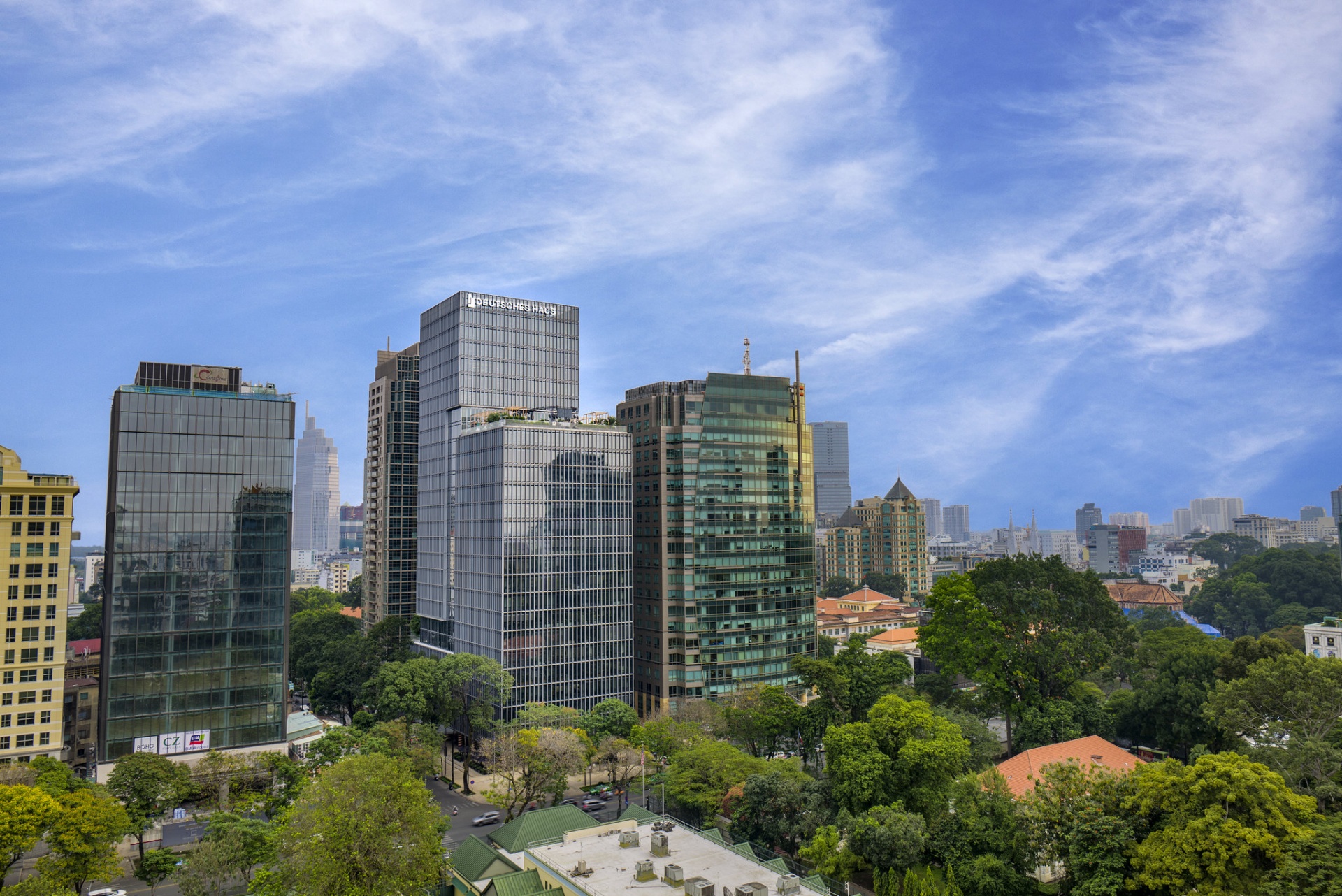 | Pepperl+Fuchs establishes sustainable factory in Vietnam Pepperl+Fuchs announced the inauguration of a new sustainable manufacturing facility in Vietnam, which has been financed with a $15 million green loan from Deutsche Bank. |
What the stars mean:
★ Poor ★ ★ Promising ★★★ Good ★★★★ Very good ★★★★★ Exceptional
Related Contents
Latest News
More News
- Trung Nam-Sideros River consortium wins bid for LNG venture (January 30, 2026 | 11:16)
- Vietnam moves towards market-based fuel management with E10 rollout (January 30, 2026 | 11:10)
- Envision Energy, REE Group partner on 128MW wind projects (January 30, 2026 | 10:58)
- Vingroup consults on carbon credits for electric vehicle charging network (January 28, 2026 | 11:04)
- Bac Ai Pumped Storage Hydropower Plant to enter peak construction phase (January 27, 2026 | 08:00)
- ASEAN could scale up sustainable aviation fuel by 2050 (January 24, 2026 | 10:19)
- 64,000 hectares of sea allocated for offshore wind surveys (January 22, 2026 | 20:23)
- EVN secures financing for Quang Trach II LNG power plant (January 17, 2026 | 15:55)
- PC1 teams up with DENZAI on regional wind projects (January 16, 2026 | 21:18)
- Innovation and ESG practices drive green transition in the digital era (January 16, 2026 | 16:51)

 Tag:
Tag:




















 Mobile Version
Mobile Version